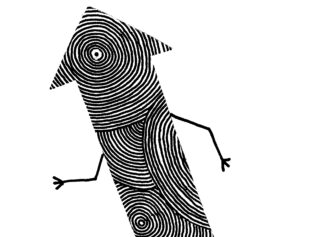
A year ago, I was approached by the Munich-based publisher Matthes und Seitz with a request for an answer to the following question, which they had put to various well-known figures, mainly West Germans: how would I react to the news that aliens from outer space had landed on the planet Earth? I didn’t want to take part in their survey, so I wrote back explaining that I don’t believe such an event is at all possible, and I’d rather not make up my own reaction to an impossibility. The publisher included a photocopy of my letter in a book containing the responses to the question, which was very funny, considering that everyone else they had asked had provided an answer, and the only person to have refused was the writer who makes a living out of science fiction. So began my collaboration with this publisher, who in early spring this year came up with another survey. This time they included plenty of people from outside Germany too. We were asked to reveal our three most personal wishes, regardless whether or not they could possibly come true, and so we were in the position of a child with a fairy godmother. My answer was published in a book titled Inseln im Ich: Ein Buch der Wünsche (“Islands in Myself: A Book of Wishes”). It was sincere enough for me to publish it now, translated back into Polish (as I wrote the original version in German). I should add that this gave me my first taste of the problems that usually fall to the lot of my translators, because while they work themselves to death translating my Polish neologisms into foreign languages, this time I had to devise equivalents in Polish for the things I had made up in German.
***
To take full advantage of the right I’ve been given to have three wishes come true, I shall start with a plain impossibility, and shall finish by plumbing the depths to produce the most impossible wish imaginable. This advance warning might sound surprising, because things that are impossible aren’t usually ranked on a scale. But that’s an error arising from the appalling lack of a general theory about how dreams come true, and thus a theory for which the border between the feasible and the unfeasible is a mere trifle. This will be shown in my effort below, which covers various degrees of impossibility.
1
My first wish is fairly modest. It involves the gradual elimination of telling lies in political and public life. Lying flourishes in both democratic and totalitarian states – in the former lies are given the same rights as the truth, and in the latter the government propagates them, with censorship in a supporting role. My wish can be fulfilled without directly infringing on these circumstances. All that’s needed is a two-way connection between public lie-telling and the liar. As a result, they will reveal their intentions to the community they’re trying to deceive. It doesn’t matter if they’re government spokesmen, TV pundits, members of the opposition, propagandists, advertising professionals or the representatives of various religions. The liar will betray himself by the fact that, as he is telling the lie, he will let out a horrible shriek of agony. Because anyone who lies will instantly feel a very sharp pain. In fact, the localization of this pain will always be a surprise for the person telling the lie. None of the liars will know in advance if he’s going to feel a stab in the kidneys, agonizing toothache, or severe stomach cramps. The pain will continue for some time after he stops lying, as a punishment and a warning. For the first few months following the introduction of my system we’ll run about feeling bewildered by the screams audible at every turn. But we’ll soon see that it’s paying off. If we’re being optimistic, we can also suppose that after a while life will become quieter, because the relevant parties will have realized the personal cost of telling lies.
Unfortunately, things are complicated by the fact that lying in its pure form is as rare an occurrence as the absolute truth. What we’re usually offered is a mixture of the two. What’s more, plenty of people tell lies in the genuine belief that they’re telling the truth. To explain how I’m going to overcome this problem, I shall now add a few words about the technical workings behind my method. There’s an invisible, global monitoring system, shielded against governments or any other sources of interference, which at lightning speed tests how much truth there is in every public statement. Things that are said in the pub or under the bedclothes don’t count – in those circumstances we can go on fibbing as much as we like. A network of computers – let’s say they are computers – examines the accuracy of what’s being said and its possible social consequences. For instance, if somebody declares that there is only one God – Allah or Jehovah – nothing will happen to him. But if he says that in the name of this God certain persons have to be killed, or certain sources of aid have to be cut off, he’ll get a twinge of sciatica, as a sort of warning shot across the bows. But he’ll be tormented by lower back pain for the next three days. Anyone who utters a sixty-percent lie will be paralysed by sixty percent for the next six weeks, and so on. The computers are programmed with precise price lists for all sorts of lies, told in various degrees of combination with the truth. Anything that isn’t listed there will land on my desk, because I shall be the supreme authority who decides what is and what is not a lie.
Of course, some people will make desperate efforts to create opportunities for lying. Fanatics and propagandists will show up who are quite prepared to go on lying in exchange for suitable pay rises to compensate for the pain. Devices will also appear, e.g. inside a radio, designed to hush up all the groans and moans. In these instances, the entire chain of command including everyone who gave them the orders to tell lies will instantly be identified, and they’ll all start screaming in chorus.
I can’t predict the consequences of this painful form of instruction for our world. We shall have to expect some appalling scenes, e.g. at political rallies and at the annual meetings of the shareholders of various firms, because limited liability will not save their boards of directors from receiving pain. Privately, I’m looking forward to many a happy hour thanks to my torturous invention. It’ll be clear to all that I won’t be an impartial appeal court judge, but I never said I would change into justice incarnate. I’m too mild-natured as it is, which is easy to tell, seeing I don’t want to punish anyone with death, or irreversible disability. I leave everyone the unrestricted right to tell lies, but they’ll simply have to pay the set price. Anyone can imagine what the world would be like a year after my first wish came true.
2
My second wish is altruistic too. The landing of alien creatures from outer space becomes a reality. On arrival, the extra-terrestrials study the attitudes prevalent among us, and finally declare that we’ve been doing everything completely wrong. At the same time, they decide WHO is the best and wisest human being of all. And by your leave, it’s me. They want to appoint me the supreme ruler of the planet, but I turn down their offer. The position of advisor to the Grand Council of Aliens is quite enough for me. They want to impose total disarmament on the world, but as soon as they leave, the arms race will start up again. So I suggest the following division of labours to the Grand Council: while I am equipped with knowledge of local relations and with some brilliant ideas, they have the capacity to carry out extremely difficult projects. We shall combine forces to build on these advantages.
I have the following notion: the Earth’s environment needs to be changed so that nobody can do any sort of harm to his neighbour. As a technical model I shall take bacteria. If there are specialized microbes of various diseases in existence, then in principle there can be tiny molecules, like viruses, that are capable of recognizing all sorts of weapons. They will be cultivated on a large scale and scattered about; in any case, they’ll continue to multiply of their own accord. My principle is that one should stop the blind sword, rather than the hand that holds it. An empty hand can’t do quite so much damage on its own. How is it going to be done? What makes something recognizable as a weapon, and not just a harmless object? It’s that weapons move at great speed – missiles, grenades, bombs and other such projectiles. So these tiny molecules will remove the energy from anything that moves very fast. The aliens will worry about the technical side of things. Within twenty-four hours all weapons systems are rendered harmless. Every missile, every bullet that’s fired now falls extremely slowly, so that it can’t explode. Tanks can go on driving, but they can’t fire. Bombs thrown from aeroplanes fall as gently as thistledown. And home-made bombs explode by flying apart into pieces of shrapnel that can be picked out of the air by hand, because they’re moving so slowly. I have made it rather difficult to build tunnels and to carry out other engineering works, but on balance I think it’s worth it. Quite involuntarily, I’ve also eliminated all sorts of disaster (e.g. car crashes), because it makes no difference to the peace-creating molecules if an object is going to bang into something in its environment deliberately, because someone wanted it to, or unintentionally, because the driver has lost control of his vehicle, for instance.
Of course, this doesn’t quite solve all the difficulties. Just one sort of peace molecule isn’t able to recognize every kind of weapon. But as nature has created germs that spread cholera, rabies, plague, and thousands of other diseases, so my colleagues from the Grand Council of Aliens have come up with a whole swarm of different peace-loving molecules. There are also specialized ones that prevent fisticuffs. If someone tries to inflict a drubbing on his neighbour, the kindness viruses, invisibly floating about in the air, transform his jacket, trousers and underclothes into a rubbery but solid outer casing, making him feel like a baby in swaddling bands, and if the troublemaker fails to drop his evil intentions but redoubles his efforts, his clothes get harder and harder, until he changes into a statue with clenched fists. Evil tongues have been saying I’ve ruined people’s sex lives, because there should be a pinch of aggression in it, but anyone who behaves too violently in bed will be tied up with his own pyjamas. Though that is easily avoided by undressing in advance, so this accusation is groundless slander.
Using toxic gases and real germs as a weapon has also been made impossible, because special catalysing molecules change those gases into perfumes, and the germs into nitrobacteria that fertilize the soil. Now, anyone who is still determined to beat his neighbour to a pulp, must not only strip off, but must also persuade the man who’s going to be beaten up to undress entirely too, otherwise the victim’s clothes will take defensive action. At first, this discovery stirred hope in the hearts of the despairing army officers. But they soon found out how extremely unfit two naked armies are for military operations. Their manoeuvres were reduced to ordinary punch-ups, and what’s worse, among all those naked men it was impossible to tell the enemy apart from one’s own side, or the rank-and-file soldiers from the officers.
Working away like mad in their laboratories, the scientists finally discovered that only animated substances are now suitable for making weapons. But when their hopes were disappointed by lard throwers and bacon guns, they made efforts to supplement their arsenals with rabid wolves, tigers, rats, and even bedbugs as biological weapons. Not even the Grand Council could come up with an antidote for rabid bedbugs. But under the influence of mollifying agents, the predators became as gentle as lambs, and despite remaining on the field of battle, the bedbugs failed to wage war on their own.
There was still the problem of various terrorists, such as the IRA, and all those who want to use bombs and murder to improve the world. Nothing better occurred to me than their humanitarian resettlement on other planets. We detoxified the atmosphere of Venus, and on Mars we also set up banks and skyscrapers amid the oases, so they’d have something to rob and blow up. Earth was rendered entirely peaceful, and I could hand in my resignation.
3
My third wish is even more impracticable than the previous two. Compared with this one, they’re child’s play. My wish is to open my eyes one morning, and find to my satisfaction that everything that has happened to me and to the world since I graduated from high school was just a nightmare – I dreamed the Second World War, the concentration camps, the occupation of Poland and other countries, “the Final Solution to the Jewish question”, the disarmament conferences, the Club of Rome, the nuclear debates and crises, etcetera. None of it happened, it was all just a bad dream. When I wake up, as well as relief I shall feel shame for ascribing to humanity so much murderous ferocity and vile conduct. How ashamed I will be to find that those who have always accused me of the misanthropy and sadistic character traits that appeared in my dream were right.
At the same time I shall confirm with joyful emotion that everything my high-school teachers taught me about the nobility of human nature was the unadulterated truth.
Kraków, February 1980
Translated from the Polish by Antonia Lloyd-Jones









